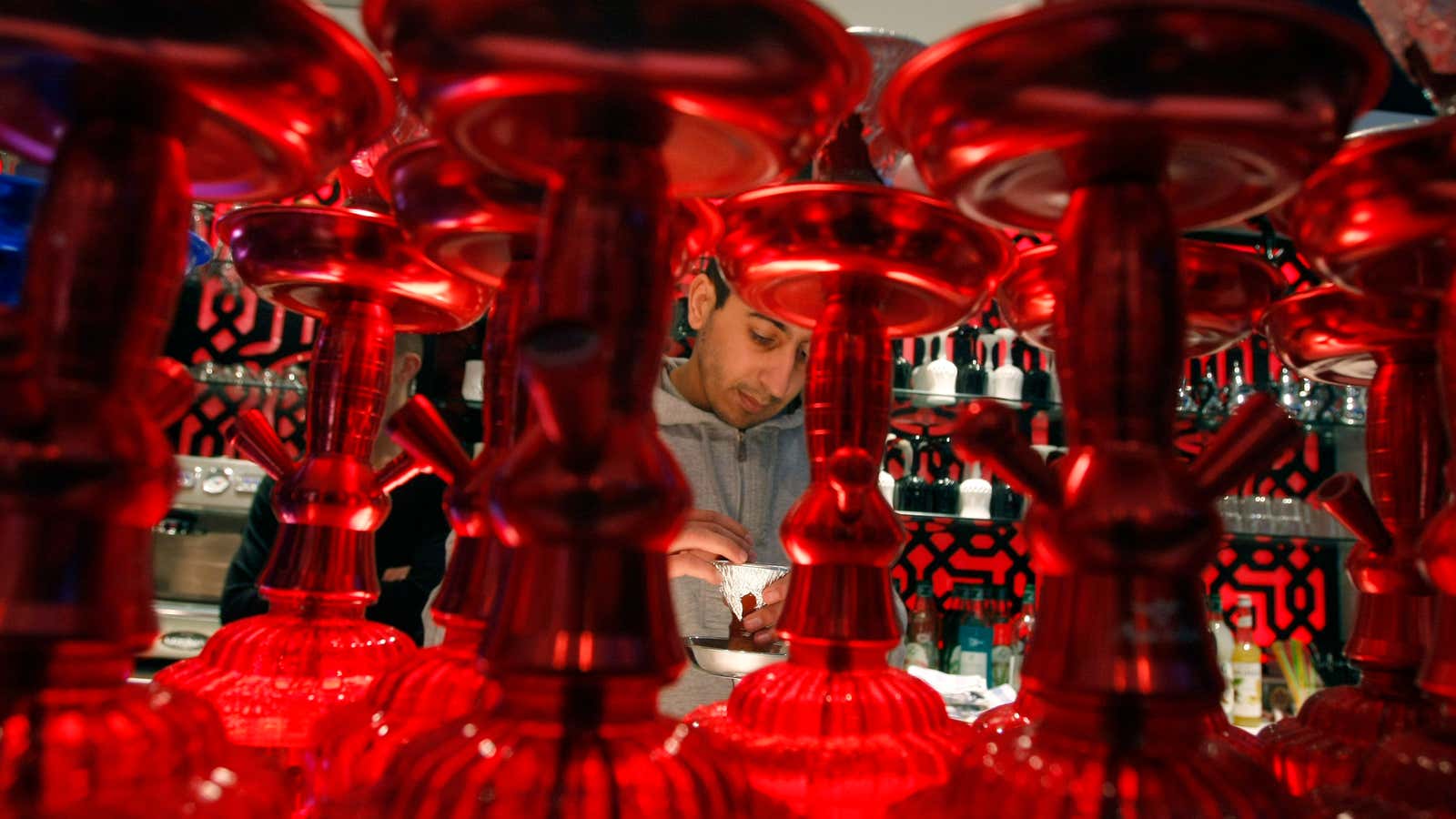Hookah can be addictive, and it isn’t much healthier than cigarettes. But a new study found that the prevalence of hookah-smoking among young Americans is increasing all the same.
The latest research, published this week in the journal Tobacco Control, posits that hookah accounts for more than half of the tobacco smoke consumed by young adults in the United States. While the researchers acknowledged that hookah-smokers tend to partake with less regularity than cigarettes, the number and level of toxins they invite into their bodies can often be worse.
To conduct their study, a team of scientists led by the University of Pittsburgh School of Medicine relied on self-reported data from 3,254 people between the ages of 18 and 30 in March and April 2013. Everyone in the study lived in the US, and participants were randomly selected. Women made up 63% of the group.
Participants were asked to fill out an online survey in which they disclosed details about their tobacco usage in the past month. About 5% of them reported that they had smoked hookah (plus approximately how much), compared with 23% for cigarettes. But despite being smoked by fewer respondents, hookah accounted for more than half of smoke inhalation. It also accounted for sizable toxins inhaled: 21% of tar, 10% of carbon monoxide, and 2% of nicotine.
Those numbers can be attributed to the mechanics of smoking hookah. A single cigarette generally involves taking about a dozen puffs, each one containing about 50 milliliters of smoke. By contrast, a hookah session lasts 45 minutes to an hour, and can involve as many as 100 puffs at 500 milliliters of smoke each.
The researchers said more studies are necessary to build out a nuanced understanding of hookah’s impact, but noted that there’s enough evidence to suggest governments should work to decrease the amount of tobacco being smoked in the US—including hookah.
“These findings suggest that important modifications in tobacco surveillance and prevention programs are warranted,” the study states. “It will be important to continue to develop and implement improved policies that dissuade use of and exposure to all types of tobacco.”
The US Food and Drug Administration has authority to regulate hookah, but there are no plans in the works at the agency to crack down on flavored smoking activities or options. In Canada, some provinces’ health authorities have worked to ban flavored tobacco products for cigarettes and cigars, but they also have not focused specifically on hookah.
